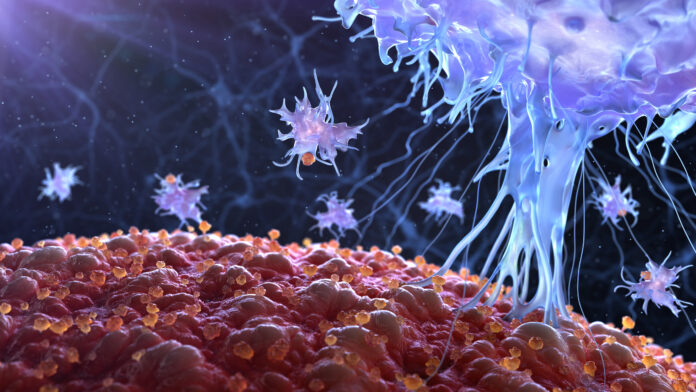
Researchers from the Icahn School of Medicine at Mount Sinai, in collaboration with the National Institutes of Health, and The University of Texas MD Anderson Cancer Center, have shed light on the intricate immune responses within cancerous tumors.
By analyzing data from over 1,000 tumors spanning 10 different types of cancer, the study, published in Cell, pioneers an integrative approach combining DNA, RNA, and proteomics.
“We aimed to improve our understanding of the mechanisms underlying the functional impairment of immune response in tumors. By closely examining genes and proteins in the tumor tissues, we discovered various patterns in immune activation and suppression,“ said Pei Wang, PhD, professor of genetics and genomic sciences at Mount Sinai and co-lead author of the study.
“Our goal in unraveling these diverse immune subtypes is to help clinicians identify patient groups more responsive to immunotherapy. Revealing the specific pathways and cellular switches for each subtype can also spark new and creative ways to develop treatments.”
The study revealed seven immune subtypes, with five showing commonalities across various cancer types. According to the scientists, this suggests potential for broad-spectrum immunotherapies effective against multiple cancers. Wang highlighted the implications for treatment, envisioning a future where immune-boosting therapies could be universally applied.
A unique aspect of the research is deep phosphoproteomic analysis—a technique used to identify phosphate groups on proteins, providing insight into protein modifications. Avi Ma’ayan, PhD, professor of pharmacological sciences, director of the Mount Sinai Center for Bioinformatics at Icahn Mount Sinai, and a senior author of the paper highlighted the potential of this data in identifying novel drug targets, particularly kinases, which could enhance the efficacy of immunotherapies.
“By targeting selected kinases with small molecules or other means, we may be able to convert tumors not responding to immunotherapies into tumors with better immune-therapy response,” Ma’ayan added.
Innovative machine-learning techniques applied to digital pathology images further uncovered the relationship between immune responses and the tumor microenvironment. This enhanced understanding could guide the development of personalized treatment strategies, optimizing patient outcomes.
Looking ahead, the researchers plan to validate their findings in ongoing clinical studies, with a focus on biomarker identification and treatment optimization. Collaborative efforts within the Clinical Proteomic Tumor Analysis Consortium (CPTAC) are underway, including investigations into the molecular mechanisms of immune checkpoint treatments in melanoma patients.












